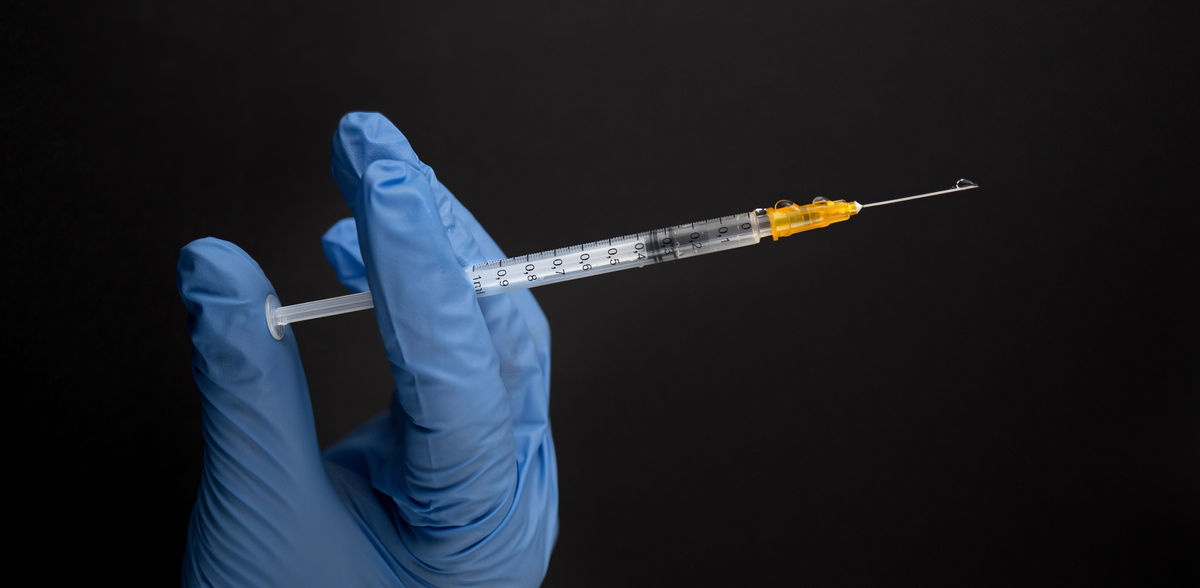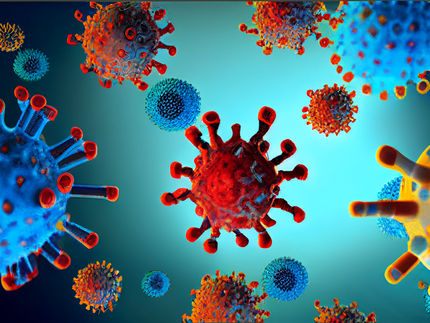Not indifferent: why it may be better to get pricked in the same arm for multiple vaccinations
Advertisement
Most people have a few thoughts before a vaccination: Will it hurt? Will I get a fever? Will the injection site hurt? However, the question of whether it is better to have a multiple vaccination administered in the same arm or whether it is better to have it administered on the right and then on the left (or vice versa) is one that hardly anyone has ever asked themselves. A young scientist at Saarland University has now found out that it is important.
"The question is so banal or trivial that hardly anyone has ever thought about it," says Martina Sester at the beginning of the interview about the study conducted by her doctoral student Laura Ziegler. At first, that doesn't sound very flattering. But on closer listening, it becomes clear that it is very much meant in an appreciative way. After all, if you want to investigate the efficacy of vaccinations and vaccines, scientists who are curious by nature, such as the professor of transplantation and infectious immunology and her doctoral student, come up with all kinds of intelligent questions: How does the drug move through the body? Does it reach the right targets directly or indirectly, and does it perhaps damage normal body cells along the way? Does this or that agent trigger a better or longer-lasting immune response? And so on... The simple question of whether it is better for the doctor to prick the same arm twice for multiple vaccinations, or once on the left, once on the right, did not belong in this category until now.
That could now change. "Because in our study we were able to find evidence that ipsilateral vaccination may well generate better protection than contralateral vaccination," explains Laura Ziegler. Ipsilateral means that the vaccination was injected twice into the same arm; contralateral means that the initial and booster vaccinations were administered once on the left and once on the right. In this case, the first and second vaccination against Corona lent itself very well as the subject of the study. In total, Laura Ziegler and Martina Sester were able to draw on data from 303 people who received their first and second vaccinations with the Biontech vaccine at the start of the Corona vaccination campaign.
The most striking observation was that the number of CD8 T cells, colloquially known as "killer T cells," was significantly higher two weeks after vaccination in those vaccinated "unilaterally" than in those who received their vaccination in both arms. "In the ipsilaterally vaccinated subjects, we were able to detect the killer cells 67 percent of the time. In the contralaterally vaccinated subjects, this proportion was only 43 percent," Laura Ziegler cites the figures. This means that in the case of a Corona infection, the immune system is more likely to respond better to the virus, since more killer cells go after the virus or the envelope.
"The number of antibodies, on the other hand, was not higher," adds Martina Sester. Unlike the killer cells, these do not destroy the viruses directly, after all, but rather dock onto them and thus prevent them from causing further damage or ensure that scavenger cells can find the viruses more easily. "What is interesting, however, is that the antibodies in the ipsilaterally vaccinated ones intercepted the spike protein of the virus more strongly," the immunologist continued. That is, the antibodies are doing the same job more effectively in the "unilaterally" vaccinated than their counterparts in the bodies of those who received the vaccination in both arms.
Studies examining the aspect of whether it makes a difference where the initial and booster vaccines are applied have been few and far between. "As dramatic as it was, the Corona pandemic helped us a lot here," says Martina Sester, explaining the circumstances under which Laura Ziegler started her study.
There were a lot of volunteers to be found at the same time who, moreover, had also never been in contact with the virus before. If their immune systems had already been in contact with the pathogen, this could have had an influence on the results of the study. Thus, all 303 immune systems had identical starting conditions. The bottom line is that the pandemic provided a unique opportunity for scientists like doctoral student Laura Ziegler and her professor Martina Sester, who want to investigate questions about how the immune system works.
The 23-year-old assesses the further implications of her findings with due scientific restraint. After all, Laura Ziegler has so far only been able to make statements about the Corona vaccination with the Biontech vaccine. Further studies will have to show whether conclusions can also be drawn for other multiple vaccinations, such as influenza vaccination or vaccinations against tropical diseases. However, it could well be that one or the other vaccination has more penetrating power when administered in the same arm.
Note: This article has been translated using a computer system without human intervention. LUMITOS offers these automatic translations to present a wider range of current news. Since this article has been translated with automatic translation, it is possible that it contains errors in vocabulary, syntax or grammar. The original article in German can be found here.
Original publication
Other news from the department science
Most read news
More news from our other portals
See the theme worlds for related content
Topic world Antibodies
Antibodies are specialized molecules of our immune system that can specifically recognize and neutralize pathogens or foreign substances. Antibody research in biotech and pharma has recognized this natural defense potential and is working intensively to make it therapeutically useful. From monoclonal antibodies used against cancer or autoimmune diseases to antibody-drug conjugates that specifically transport drugs to disease cells - the possibilities are enormous

Topic world Antibodies
Antibodies are specialized molecules of our immune system that can specifically recognize and neutralize pathogens or foreign substances. Antibody research in biotech and pharma has recognized this natural defense potential and is working intensively to make it therapeutically useful. From monoclonal antibodies used against cancer or autoimmune diseases to antibody-drug conjugates that specifically transport drugs to disease cells - the possibilities are enormous
























































